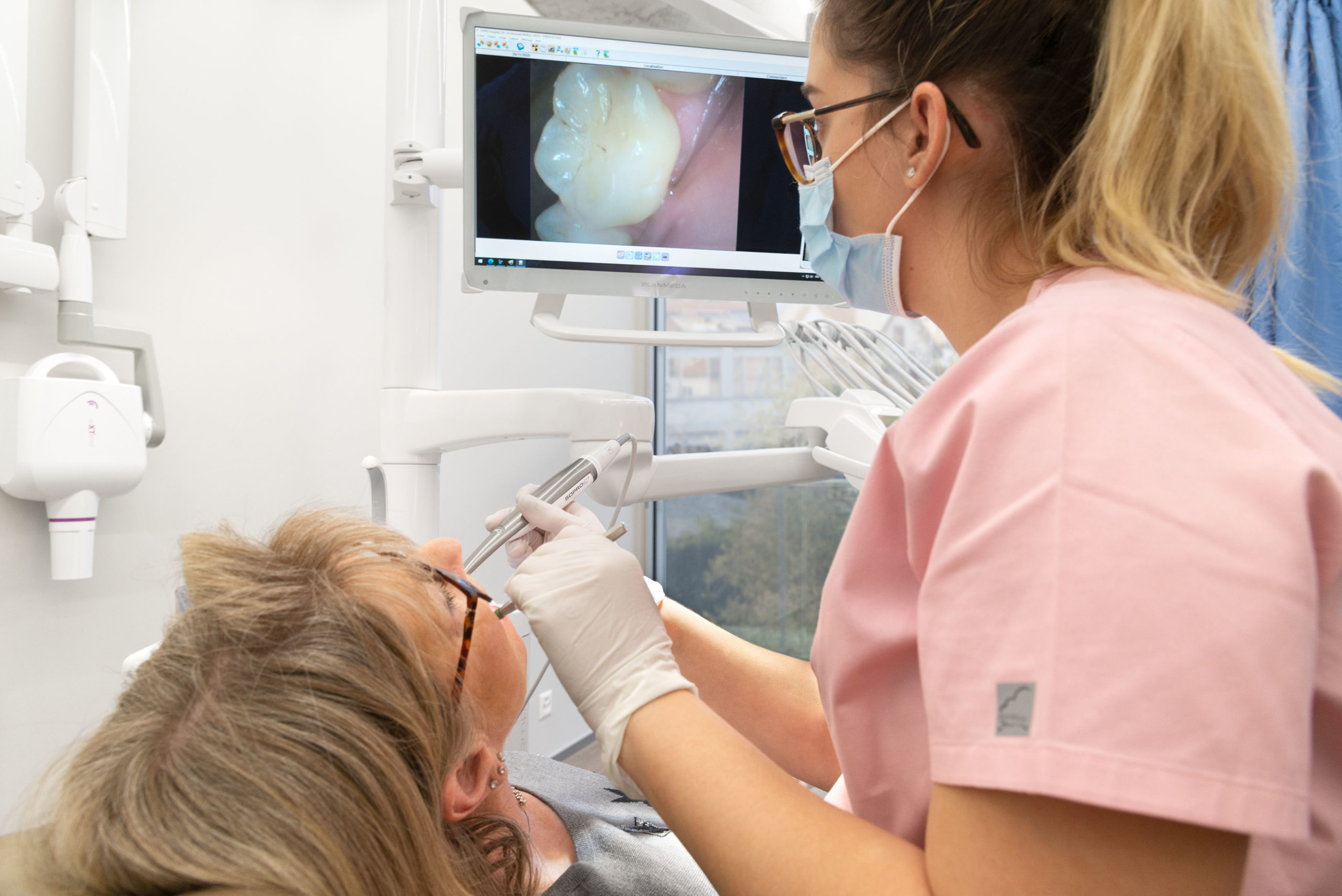
Dental emergency and dental permanence in Geneva
Dental Emergency
The Centre Dentaire Chêne-Bourg is able to handle dental emergencies, including Saturdays, with quick response times.
In case of severe toothache or accident, our team of dentists is at your disposal to relieve your dental pain and start emergency first aid.
The care
From Monday to Friday, dental emergencies are handled at the office by a Dentist. He will adjust his schedule to treat you as quickly as possible. Your treatment will be easier if you call the office as soon as possible.
Dental emergencies on Saturday mornings alternate every other Saturday between the Chêne-Bourg and Champel dental centers.
Contact us at 022 870 94 94
We alert you to the fact that emergency care will have to be paid the same day. Possibility of payment by credit card.
Dental emergency advice
When should you consult?
The urgency depends not only on the seriousness of the situation but also on the pain threshold, which depends on each person. However, it is advisable not to wait too long to consult! Prompt care generally improves the success of the treatment.
The reasons for consultation frequently concern :
- Stubborn dental pain
- Tooth decay
- Wisdom teeth that grow or press
- Dental abscesses
- Gum pain
- Fractured dentures
- Trauma to the oral system

What to do in case of an accident?
If a tooth is lost in whole or in part, do not throw it away! Rinse it with water without rubbing it, store it in milk or, failing that, in saline, and consult without delay.
Dental injuries resulting from accidents often occur at home, during leisure activities or sports. Children and young people in particular are concernés : About 5 % of all teenagers in Switzerland have suffered a dental accident before the age of sixteen. If these injuries are correctly identified and treated, even severely damaged teeth can often be preserved. A dental trauma experienced during childhood can have serious consequences, sometimes for a lifetime. It is therefore essential for parents, teachers and children to know how to deal with dental trauma.
What is dental trauma?
Dental trauma occurs when a tooth is broken, moved, displaced or torn out as a result of an accident (e.g., a fall or blow).
What can faire do?
It is important to adapt adapted behaviour after dental trauma. Very often, permanent teeth can be saved by taking action correctement !
Keep calm and act thoughtfully.
In case of heavy bleeding, give the child a gauze pad or tissue, ask him/her to bite it gently and apply ice at extérieur ; Go immediately to a dentist or dental clinic for any trauma dentaire !
Movable or displaced tooth
Leave the teeth in position and go immediately to a dentist or dental clinic.
Broken tooth
Store the broken tooth fragment in water. See a dentist or dental clinic immediately.
ToothRemoval
Place the extracted tooth in a rescue box from dents : these boxes are available in pharmacies and dental offices. If you do not have one, place the tooth in cold milk. Go immediately to a dentist or dental clinic.
Important : Do not attempt to clean a chipped tooth. Do not grasp it by the root. Keep it at humidité !
Are milk teeth that have undergone a lésion treatment also treated?
Damage to the baby teeth can cause permanent damage to permanent teeth that have not yet erupted, because the germs of the permanent teeth, which are vulnerable, are placed under the baby teeth.
That is why it is important to go to a dentist or dental clinic immediately, even if it is milk teeth that are injured or displaced.
What treatment for trauma dentaire ?
The dentist examines the affected teeth and assesses the severity of the injury to the tooth, root or nerve, including an x-ray or cold vitality test. Whenever possible, fragments of broken teeth are glued back together.
Teeth that have become loose, displaced or sunken are put back in their place and secured with a glued splint.
What are the prospects for successful trauma treatment dentaire ?
The sooner we get to a dentist, the better the chances of success. The time is précieux : placed in a tooth rescue box, the extracted teeth remain viable for twenty-four hours (and only a short time in cold milk). Teeth that have become loose or displaced must be stabilized with a splint as soon as possible after the accident.
Who pays the costs of trauma dentaire ?
Dental trauma is insured. Employees insured by their employer are covered by occupational or non-occupational accident insurance. Persons not in gainful employment (children, adolescents, pensioners) are covered by the competent health insurance at the time of the accident. All dental injuries must be reported to the insurance company without delay.


